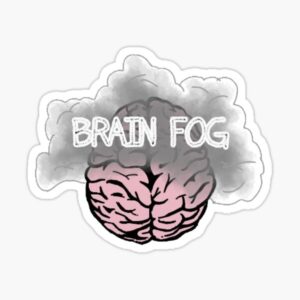Introduction
If you have ADHD, you’re probably no stranger to the frustrating experience of brain fog—those moments (or hours) when your thoughts feel sluggish, memory falters, and focus slips through your fingers like mist. While ADHD is often associated with hyperactivity and distractibility, the cognitive sluggishness of brain fog is just as real and disruptive. Fortunately, there are strategies that can help.
In this article, we’ll explore the connection between ADHD and brain fog, and walk through science-backed tips and practical tools to lift the haze.
What Is Brain Fog?
Brain fog isn’t a clinical diagnosis, but it describes a collection of cognitive symptoms, including:
Trouble focusing or paying attention
Forgetfulness or poor memory
Mental fatigue or sluggish thinking
Difficulty finding words or making decisions
People with ADHD often experience brain fog due to a mix of executive function challenges, sleep issues, emotional dysregulation, and sometimes medication side effects.
Why ADHD and Brain Fog Often Go Hand in Hand
ADHD is a neurodevelopmental condition that affects the brain’s self-management system. Here are some reasons ADHD can contribute to brain fog:
Executive Dysfunction: ADHD impairs executive functions like working memory, task initiation, and attention control—all of which are crucial for clear thinking.
Sleep Disruptions: Many people with ADHD struggle with sleep, leading to fatigue and brain fog the next day.
Overstimulation or Burnout: The constant effort to stay focused can wear down your cognitive reserves.
Medication Effects: Stimulant crashes or inconsistent dosing can lead to periods of fogginess.
Strategies to Combat ADHD Brain Fog
Prioritize Quality Sleep
Sleep deprivation is one of the biggest contributors to brain fog. Try:
Establishing a consistent bedtime routine
Reducing screen time an hour before bed
Using white noise or a weighted blanket if it helps you relax
If insomnia is chronic, speak to a healthcare provider—ADHD-related sleep disorders like delayed sleep phase syndrome are common.
Use External Supports
Don’t rely on memory alone. Use tools to “offload” cognitive load:
Digital apps like Notion, Todoist, or Google Calendar
Timers and reminders for tasks and breaks
Visual checklists and sticky notes for daily routines
These aids can prevent mental overload and reduce fog.
Eat for Focus
Blood sugar crashes can trigger fog. Try to:
Eat balanced meals with protein, fiber, and healthy fats
Avoid skipping meals, especially breakfast
Stay hydrated—dehydration worsens mental clarity
Consider speaking to a dietitian about ADHD-friendly nutrition strategies.
Take Movement Breaks
Physical activity boosts dopamine and clears mental cobwebs:
Short walks, dancing, or stretching between tasks
Desk exercises or standing desks to keep blood flowing
Morning workouts can help set the tone for the day
Even 5 minutes of movement can reset your brain.
Practice “Body Doubling”
This ADHD-friendly technique involves working alongside someone (virtually or in person) to stay focused. It creates external structure and accountability.
Join online co-working groups like Focusmate
Ask a friend to work quietly beside you
Use virtual “study with me” videos if you’re solo
Mindfulness and Grounding Techniques
Brain fog is often worsened by stress. Try:
Box breathing (inhale for 4, hold for 4, exhale for 4)
Grounding exercises (e.g., 5-4-3-2-1 sensory check-in)
Meditation apps designed for ADHD, like Headspace or Aura
Even just 2–5 minutes of calm can improve clarity.
Review Medications with a Professional
If you’re on ADHD meds and experiencing brain fog, talk to your prescriber. You may need to adjust:
Dosage or timing
Type of medication
Adding supplements (with guidance) like omega-3 or magnesium
Medication management should always be personalized.
Final Thoughts
Brain fog can feel like an invisible wall between you and your potential. But with the right strategies—tailored to your unique brain—it is possible to lift the fog and reclaim your focus. ADHD doesn’t have to mean living in a permanent mental haze. With support, structure, and self-compassion, you can find your way back to clarity
